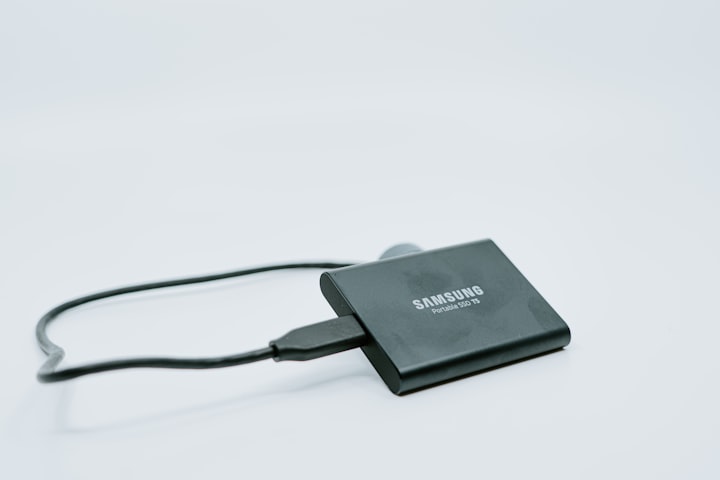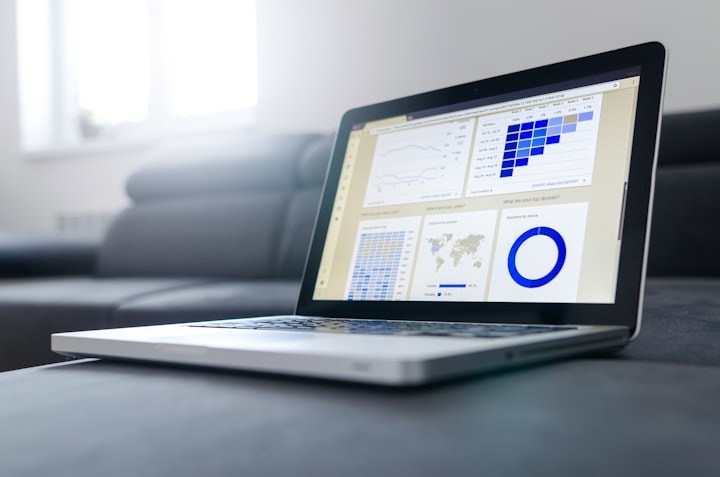
HD is used as the primary storage device in laptops and desktops. It consists of an I / O controller and a firmware that tells the hardware how to communicate with the remaining systems. A hard disk has a read / write head with floating or rotating disks for reading and writing data.
Solid-state drives (SSD) and hard drives (HDD) perform the same memory function in a computer, but there are some notable differences between them. For example, non-volatile memory (hard disk) stores your computer's operating system, software programs, and other files that you download all the time. Hard drives are traditional storage devices that use mechanical disks that move in a read / write head to access data.
Many SSDs have a SATA III port which means they can be installed instead of a hard drive and many are available in a 2.5-inch format, which is smaller than the hard drives. As the name suggests, an SSD is a traditional hard drive without moving parts.
The lifespan of an SSD is not as long as that of a hard drive, especially if you use it as the only drive in a PC. If you are not looking for a short-term lifespan compared to hard disk space, this will be significantly reduced.
These drive types are cheaper than SSDs and available in enormous sizes. SSDs cannot handle write operations at boot time, but do not suffer from this problem.
If you want a responsive laptop with plenty of storage space, consider a hybrid drive that combines both. A hybrid drive is a controller that manages both the hard drive and the flash chip that makes up the SSD so that they appear as a single drive.
The SSD offers faster performance than the hard disk because the hard disk relies on moving mechanical parts. The approach of the hybrid drive does not correspond to the speed of the SSDs, but is closer to the hard drive price.
HD uses mechanical parts to read and write data, so there is a high latency between when you request the data and when it is delivered. The downside is that hard drives store and retrieve data much faster than flash memory-based SSDs. Although hard disk technology uses more physical than electrical processes to recover data, it is still simpler than SSD.
Hard drives are heavier than intended, make more noise, produce more heat and draw more battery power. The most efficient system with SSD boots Windows on one or more hard drives for mass storage.
SSDs mean that most people will manage with less storage space. Our final recommendation is to choose a mixed system with a hard disk for mass storage and SSD as the boot drive for your Windows 10 installation.
Hard drives will retain their advantage in terms of storage space for the foreseeable future, but this will change in the next few years when SATA SSDs with 16TB capacity appear and prices drop to a more affordable level. If you want to save long term and save large files and folders, then hard drives are still the way to go, and this is one of the few areas where they have the say. However, as they use older, more established technologies, they will remain expensive in the future.
Solid-state and hybrid drives offer maximum capacity at an affordable price, while solid-state drives are more affordable at lower capacities. Some models, such as the WD Black and Samsung 980 Pro, feature PCI Express 4.0 interfaces and TLC NAND, while the Blaze and other SSDs offer higher capacities at lower prices, lower performance and shorter lifetime. The price gap between hard drives and low-end SSDs is closing, and an additional buck for an SSD can push the system price to a budget.
The biggest problem with hard drives is that they are vulnerable to physical damage due to their use of mechanical components. There are a lot of small moving parts in your hard drive such as magnet heads, spindles and rotating disks and it is easy that things could go wrong and you could lose all of your important data. SSDs have no moving parts, so they can withstand the stresses we impose on our portable devices such as laptops.
Solid-state drives also require less power, resulting in better battery life. For example, the laptop on the left has a traditional hard drive while the laptop on the right has a modern solid-state drive. The price of laptops that come with traditional hard drives is falling in a way that manufacturers minimize their costs, and most middle- and high-end computers come with SSDs.
If you drop your laptop and have the chance to read or write on the head of an old school hard drive, the movement can cause a data failure.
As console technology catches up with solid-state storage alone, more and more next-gen games will expect you to use SSDs. It is unclear whether SSDs will replace conventional hard drives anytime soon, but shared cloud storage is in the wings. The price of SSDs is falling, but they are still expensive enough to replace the terabytes of data users have on their PCs and Macs, and mass storage doesn't have to be fast.
Welcome to the SSD vs. HDD guide, which highlights the advantages and disadvantages of traditional hard drives (HDD) and solid-state drives (SSD) to help you find the one that fits your needs most effectively. The consensus is that Solid State will triumph over price and speed, and the next-gen consoles will be equipped with spacious SSDs. We will compare the two types of hard drives and see which are doing particularly well and which are doing less well.
SS and hard disk speed are measured in MB / s (megabytes per second), where reading is faster when the drive reads and writes data and faster when data is written on the drive. Other factors, such as capacity, play a role in disk speed, but SATA III hard drives generally perform better at 5,400 rpm (100MB / s) and 7,200 rpm (150MB / s). SATA drives boot more slowly and fetch data more slowly than SSDs.





Comments
There are no comments for this story
Be the first to respond and start the conversation.